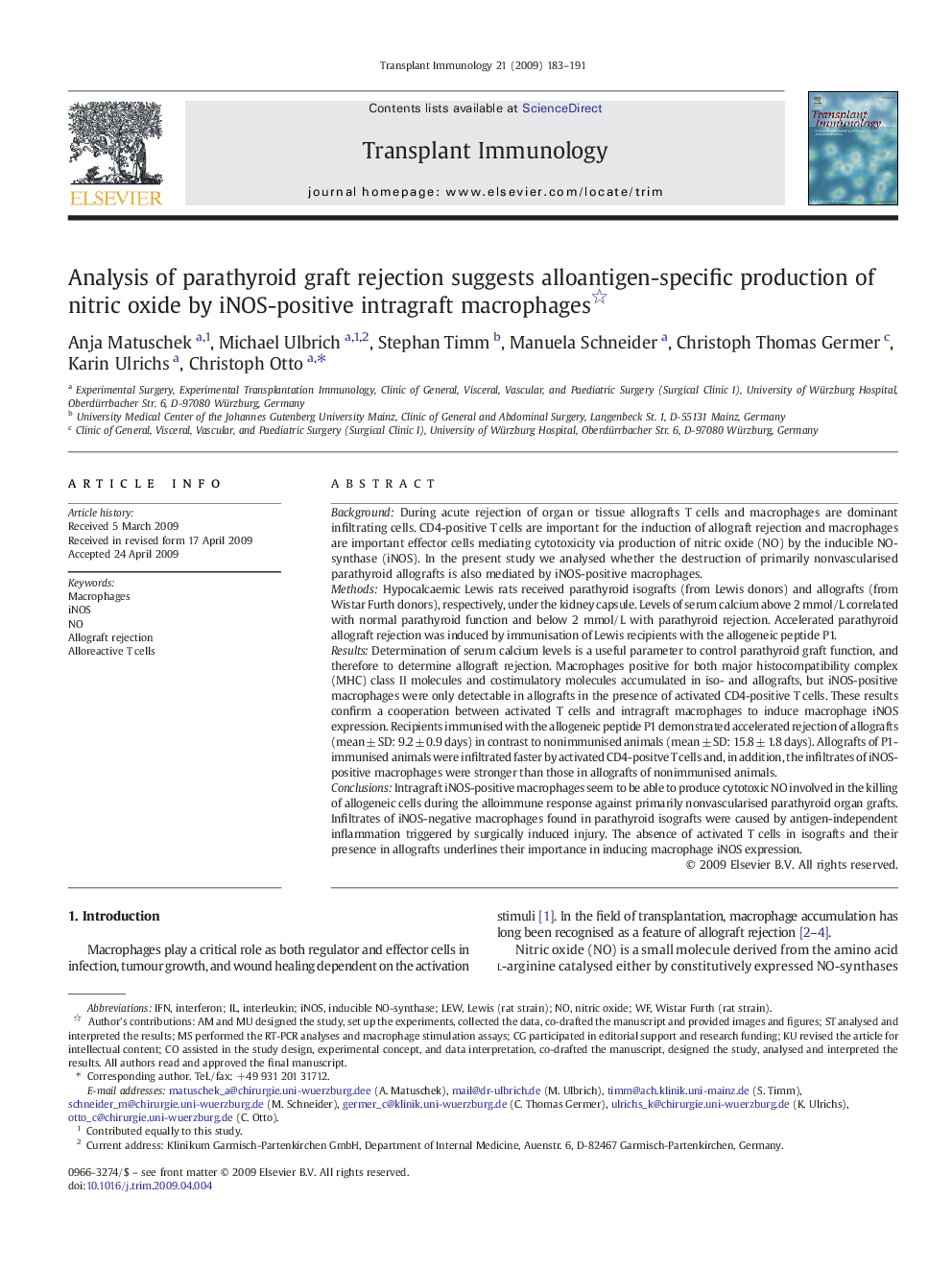| کد مقاله | کد نشریه | سال انتشار | مقاله انگلیسی | نسخه تمام متن |
|---|---|---|---|---|
| 3392372 | 1221216 | 2009 | 9 صفحه PDF | دانلود رایگان |

BackgroundDuring acute rejection of organ or tissue allografts T cells and macrophages are dominant infiltrating cells. CD4-positive T cells are important for the induction of allograft rejection and macrophages are important effector cells mediating cytotoxicity via production of nitric oxide (NO) by the inducible NO-synthase (iNOS). In the present study we analysed whether the destruction of primarily nonvascularised parathyroid allografts is also mediated by iNOS-positive macrophages.MethodsHypocalcaemic Lewis rats received parathyroid isografts (from Lewis donors) and allografts (from Wistar Furth donors), respectively, under the kidney capsule. Levels of serum calcium above 2 mmol/L correlated with normal parathyroid function and below 2 mmol/L with parathyroid rejection. Accelerated parathyroid allograft rejection was induced by immunisation of Lewis recipients with the allogeneic peptide P1.ResultsDetermination of serum calcium levels is a useful parameter to control parathyroid graft function, and therefore to determine allograft rejection. Macrophages positive for both major histocompatibility complex (MHC) class II molecules and costimulatory molecules accumulated in iso- and allografts, but iNOS-positive macrophages were only detectable in allografts in the presence of activated CD4-positive T cells. These results confirm a cooperation between activated T cells and intragraft macrophages to induce macrophage iNOS expression. Recipients immunised with the allogeneic peptide P1 demonstrated accelerated rejection of allografts (mean ± SD: 9.2 ± 0.9 days) in contrast to nonimmunised animals (mean ± SD: 15.8 ± 1.8 days). Allografts of P1-immunised animals were infiltrated faster by activated CD4-positve T cells and, in addition, the infiltrates of iNOS-positive macrophages were stronger than those in allografts of nonimmunised animals.ConclusionsIntragraft iNOS-positive macrophages seem to be able to produce cytotoxic NO involved in the killing of allogeneic cells during the alloimmune response against primarily nonvascularised parathyroid organ grafts. Infiltrates of iNOS-negative macrophages found in parathyroid isografts were caused by antigen-independent inflammation triggered by surgically induced injury. The absence of activated T cells in isografts and their presence in allografts underlines their importance in inducing macrophage iNOS expression.
Journal: Transplant Immunology - Volume 21, Issue 4, September 2009, Pages 183–191